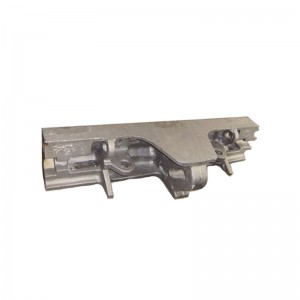- Afrikaans
- Albanian
- Amharic
- Arabic
- Armenian
- Azerbaijani
- Basque
- Belarusian
- Bengali
- Bosnian
- Bulgarian
- Catalan
- Cebuano
- China
- China (Taiwan)
- Corsican
- Croatian
- Czech
- Danish
- Dutch
- English
- Esperanto
- Estonian
- Finnish
- French
- Frisian
- Galician
- Georgian
- German
- Greek
- Gujarati
- Haitian Creole
- hausa
- hawaiian
- Hebrew
- Hindi
- Miao
- Hungarian
- Icelandic
- igbo
- Indonesian
- irish
- Italian
- Japanese
- Javanese
- Kannada
- kazakh
- Khmer
- Rwandese
- Korean
- Kurdish
- Kyrgyz
- Lao
- Latin
- Latvian
- Lithuanian
- Luxembourgish
- Macedonian
- Malgashi
- Malay
- Malayalam
- Maltese
- Maori
- Marathi
- Mongolian
- Myanmar
- Nepali
- Norwegian
- Norwegian
- Occitan
- Pashto
- Persian
- Polish
- Portuguese
- Punjabi
- Romanian
- Russian
- Samoan
- Scottish Gaelic
- Serbian
- Sesotho
- Shona
- Sindhi
- Sinhala
- Slovak
- Slovenian
- Somali
- Spanish
- Sundanese
- Swahili
- Swedish
- Tagalog
- Tajik
- Tamil
- Tatar
- Telugu
- Thai
- Turkish
- Turkmen
- Ukrainian
- Urdu
- Uighur
- Uzbek
- Vietnamese
- Welsh
- Bantu
- Yiddish
- Yoruba
- Zulu
ก.ย. . 10, 2024 20:29 Back to list
Premium Ferrous Castings Manufacturer | High-Quality Iron Castings Solutions
Understanding Ferrous Castings An Essential Component in Modern Manufacturing
Ferrous castings play a pivotal role in various industries, serving as a foundation for many mechanical and structural applications. Composed primarily of iron and its alloys, ferrous castings are known for their durability, strength, and ability to withstand extreme conditions. This article delves into the characteristics, manufacturing processes, applications, and advantages of ferrous castings.
At the heart of ferrous castings is iron, which can be alloyed with carbon and other elements to produce different types of castings, including gray iron, ductile iron, white iron, and malleable iron. Each type offers unique properties, making them suitable for various applications. For instance, gray iron is well-known for its excellent machinability and vibration damping qualities, making it ideal for engine blocks and machine bases. Ductile iron, on the other hand, boasts enhanced tensile strength and impact resistance, making it preferable for automotive components and heavy machinery parts.
The manufacturing process of ferrous castings typically involves several steps, beginning with the creation of a mold. The mold can be made from sand, metal, or ceramic, depending on the casting method used. The molten iron is then poured into the mold, where it cools and solidifies into the desired shape. Common casting methods include sand casting, investment casting, and lost foam casting. Each technique has its advantages, with sand casting being the most widely used due to its versatility and cost-effectiveness.
ferrous castings

Ferrous castings are utilized in a myriad of applications across various sectors, including automotive, construction, and aerospace. In the automotive industry, they are used for engine components, transmission housings, and axle casings. In construction, ferrous castings find their way into infrastructure projects, including bridges, railways, and pipelines. Furthermore, the aerospace industry relies on specialized ferrous castings for critical components that require high strength and reliability.
The advantages of ferrous castings are numerous. They exhibit excellent mechanical properties, making them suitable for high-stress applications. Their ability to absorb shock and vibration helps to extend the lifespan of components. Additionally, ferrous castings are often more cost-effective than other materials, allowing manufacturers to optimize their production processes while maintaining product quality.
However, it is essential to consider the environmental impact of ferrous casting production. Sustainable practices, such as recycling scrap metal and optimizing energy usage, are increasingly being adopted to minimize the ecological footprint of casting processes.
In conclusion, ferrous castings are indispensable in modern manufacturing, offering a combination of strength, durability, and cost-effectiveness. As industries continue to evolve, the development of advanced techniques and sustainable practices will enhance the efficiency and environmental responsibility of ferrous casting production, ensuring their relevance for years to come.
-
Durable Cast Iron Water Main Pipe | AI-Optimized Design
NewsAug.05,2025
-
8mm Thin-Walled Cast Steel Manhole Cover Pallet Bottom Ring | Durable
NewsAug.04,2025
-
Premium Cast Iron Water Main Pipe: Durable, Corrosion-Resistant
NewsAug.03,2025
-
Durable Cast Iron Water Mains | AI-Optimized Systems
NewsAug.02,2025
-
High-Efficiency Propane Boiler for Baseboard Heat | Save Energy
NewsAug.01,2025
-
Premium Source Suppliers for Various Gray Iron Castings
NewsJul.31,2025


